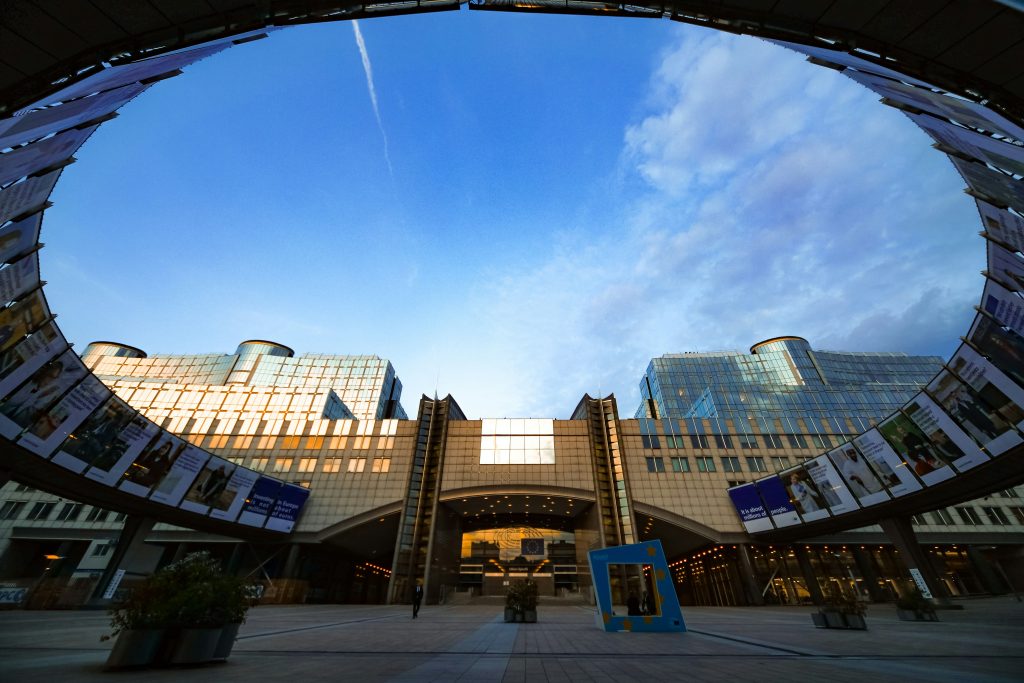[FR] One Parliament cannot hide another

The European Parliamentary Model: Disconcerting Not for Its Lack of Democracy, but for Its Different Kind
The European parliamentary model disconcerts and disturbs—not, as has been repeated ad nauseam for the past twenty years, because the European Union supposedly suffers from a “democratic deficit,” but because it is entirely governed by a democracy of negotiation, an approach that we French simply do not stock in our political warehouse, obsessed as we are with the idea that true democracy must be confrontational.
I was a member of the European Parliament for nineteen years, and after nine years of studious and disenchanted retirement, I returned to parliamentary service in 2017 in the wake of Emmanuel Macron’s victory—but this time, as a member of the National Assembly. A rigorous comparison of the two experiences is not easy due to the unequal lengths of time I spent in each role, and even more so, because of how distant my Strasbourg memories now feel: today’s Europe is undoubtedly less hopeful than yesterday’s, and, on top of that, memory plays tricks on the aging man, threatened as he is by sentimentality for his past. And yet, however delicate the exercise, two very clear lessons emerge for me: nothing resembles a European MP less than a national MP, and the disdain—or at the very least, condescension—commonly heaped on the European Parliament is completely unjustified.
“The Common Good” versus the General Interest
The list of differences between France’s and Europe’s parliamentary houses far exceeds the scope of this testimony. I’ll therefore limit myself to just the “felt” differences, as meteorologists would say, and will highlight four. The first, and perhaps the most decisive, lies in the opposition between a European culture of otherness and a national culture of unity. In France, we revere the Holy Grail of the general interest and, with Carré de Malberg, view the law as the expression of the “General Will.” Hence, the majoritarian system: the will—clearly more “particular” than “general”—of some prevails by knockout over that of others. In Europe, belief in the “common good” prevails, and the making of law is seen as a painstaking process of listening to everyone, reducing differences, and crafting that common good in a careful, almost artisanal fashion. Political debate in France feeds on the clash of incompatible general wills. In Europe, it is worn down and resolved through the overcoming of differences. Recognition of the other is a starting point in Europe. In France, it is a final outcome.
Tolerance and Party Spirit
The second difference, in many respects a byproduct of the first, concerns tolerance and party spirit. There is a European culture of respect for differences that favorably contrasts with a national culture of loud camaraderie. In Europe, we look at each other. In France, we stare each other down. In Europe, one listens and judges what is said. In France, analysis of a message is replaced by a trial of its speaker. What matters is not what one says but where one speaks from. Nothing is more childish and degrading in this regard than the twice-weekly public sessions of government questions—screaming, gesticulating scenes of hysteria that offer the worst image of our democratic life and, quite simply, of our civic maturity. Curiously, the moment MPs meet in smaller groups—in committees or working groups—the Republic of invective gives way to the Republic of camaraderie, and our abominable Mr. Hydes turn into kindly Dr. Jekylls. Why this tendency toward ostentatious invective among national deputies? No doubt due to a mix of our fondness for cold civil war and an excessive taste for rhetorical combat. The European Parliament prefers negotiated compromises to verbal jousts. The French Parliament talks; the European Parliament negotiates.
Multipolar or Bipolar Debate
The third difference—which tends to blur under the impact of Macron’s political upheaval—concerns the structural modalities of internal debate within each assembly: multipolar debate in the European Parliament, versus bipolar debate in the National Assembly. In the National Assembly, debate was long dominated by the left-right divide. The European Parliament, by contrast, has always hosted a fragmented political debate between three simultaneous cleavages, none of which ever managed to dominate the others: first, the classic left-right divide, always present but never prevailing; second, the divide between federalists and sovereigntists, essential in a body tasked with building an integrated Europe; and third, the divide between frugal states and spendthrift states—the former careful with their money, the latter generous with others’. The consequence of this multi-dimensional diversity is simple: no majority is guaranteed, and none is permanent. The diversity of national representation cuts across political groups. One must aim for unanimity and reach across groups just to build a simple majority. The European Parliament is a place of uninterrupted negotiation. The knives must stay in the cloakroom.
On this ground—the fragmentation of debate—the European Parliament is several steps ahead of the National Assembly. However, the latter is now making an effort to catch up. The Macronian revolution marked a significant shift toward multipolarity, breaking—at least temporarily—the left/right binary, or at least dulling its ideological sharpness. The left/right divide has not disappeared, but it has had to give way as the main axis of majoritarian conflict to a new confrontation: between a free economy and open society on one hand, and a managed economy and closed society on the other. As a result, the new assembly is no longer split in two but in five: two populist parties at the extremes, a residual left and right struggling to restore meaning to their old opposition, and at the center, a Macronian majority uniting moderate left and right around a “liberal, social and European” project. Thus, the French National Assembly has significantly narrowed the gap separating it from the rest of Europe in general and the European Parliament in particular. Macronism has helped normalize French political debate by introducing an unusual formula under the Fifth Republic: the convergence of the center, with the hard left and right relegated to the margins.
Negotiation versus Confrontation
The fourth difference lies in the profoundly dissimilar forms of majority mobilization within the two assemblies. In France, parliamentary life has long been dominated—indeed crushed—by the “fact of the majority,” dividing MPs into two categories: the excluded and the submissive, those not in the majority and those not in government, united since 1958 by a shared marginalization. Since President Macron’s election in 2017, the left-right split has fractured, but executive pressure on MPs has not eased, and the straitjacket of majority control has not loosened. What’s changed is that loyalty to the government has replaced ideological alignment as the principle of majority cohesion. The European Union, by contrast, has always steered clear of confrontational majoritarianism, well aware of the unmanageable nature of binary conflict and the risk of internal disintegration within a fragile community of states. Hence, the whole system is built as a permanent nesting of intra- and inter-institutional negotiations, with the European Parliament elected through proportional representation—a system of shared, not imposed, power—and with viable majorities in any EU institution requiring a central coalition between moderate left and right.
The European MP is a free man, master of his own vote. The national MP is a man under the dual yoke of government and party whip. The European MP’s glass is not large, as the EU’s political powers are limited—but at least he drinks from it. The national MP’s glass reflects the full scope of state authority—but it is the government that drinks from it. The Union owes everything to Montesquieu, to the plurality of free, balanced powers. France owes everything to Rousseau and his elusive “General Will.” Elusive, I said? Maybe not—but spare yourself the trouble of searching for it at the Palais-Bourbon: it’s not there!
The Child of Desire and the Daughter of Constraint
In conclusion, one cannot understand the European Parliament without grasping the dynamic that drives it and has, in just a few decades, lifted it from insignificance. Unlike the French National Assembly, that tired grand lady growing increasingly dependent, the European Parliament is an institution in constant development. Its functional equilibrium is like that of a bicycle: it must keep moving to stay upright. What began as a distraction for national parliamentarians and a waiting room for deferred ambitions is becoming day by day a more powerful and respected institution. Each negotiated directive, each solemn vote, affirms its role and expands its influence. European MPs have thus discovered—though for how much longer, no one knows—in their own desire for power the secret to a wisdom and aptitude for inter-institutional compromise that has proved richly rewarding and allowed them to remain free without becoming paralyzed. If discipline in Strasbourg is the child of desire, in Paris it is the daughter of constraint: it is submission guaranteed by blocked votes, confidence motions, presidential power to dissolve Parliament, and the two-round majoritarian electoral system—tools that make the National Assembly march straight, though not necessarily stand tall.
A house without windows is a prison. But it spares its inmates from despair only because, for the most brilliant among them, it remains—despite everything—a chamber of hope.




